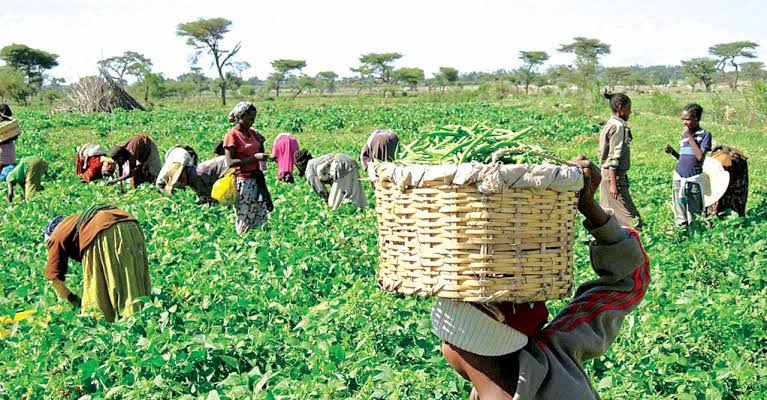Some agriculture experts have called on Nigerians, especially farmers, to embrace biotechnology cowpeas for improved nutrition and food security.
The experts made the call on Thursday in Lagos at an advocacy campaign to increase the consumption of biotechnology cowpea (Bt cowpea), Nigeria’s first biotech food crop.
The campaign was organised by the Foreign Agricultural Service of the U.S. Department of Agriculture, in collaboration with Nigeria’s National Biotechnology Development Agency (NABDA).
The campaign had the theme: “Eating is Believing”.
The News Agency of Nigeria (NAN) reports that the campaign was aimed at enhancing consumer acceptance, farmer adoption and uptake of biotechnology cowpea, to contribute to the country’s production goals while serving as a model for other countries across sub-Saharan Africa.
The NABDA Deputy Director, Dr Rose Gidado, said at the event that Nigeria’s population had continued to increase and there was the need to embrace emerging technologies and more scientific ways to improve crop production.
Gidado said that the new variant of cowpea was insect-resistant and yielded more.
“This advocacy campaign is meant to demonstrate the safety and nutrition effects of Bt. Cowpea as well as increase consumer awareness on Bt cowpea and food products.
“Some of our objectives are to assure consumers of the safety of the cowpea, increase market and consumer acceptance and to increase stakeholders, especially smallholder farmers’ awareness of PBR cowpea,” she said.
Mr Kabir Ibrahim, President, All Farmers Association of Nigeria, said the Bt. Cowpea was a game changer and would help to close the food gap in the country.
“The general problem with cowpea is that it gets destroyed by pests easily, but this new variant survives better and doesn’t require a lot of spraying against pests.
“This cowpea will take us out of poverty,” Ibrahim said.
He urged farmers to embrace biotechnology which he described as a gateway to prosperity.
In his remarks, Mr Gerald Smith, Counselor for Agricultural Affairs at the U.S. Mission, noted that a common misconception about biotech crops was that the process changed the food traits, especially the taste.
According to Smith, the advocacy campaign will reinforce safety and promote the nutritional facts and health benefits of the transgenic bean.
“This outreach event represents decades of achievement by Nigerian scientists and international colleagues to successfully develop transgenic cowpea to help farmers increase productivity while controlling weed and insects.
“The commercialisation of the transgenic bean underscores that extensive food safety studies are conducted to demonstrate that it is safe for human consumption.
“The eventual planting of Bt cowpea by smallholder farmers will contribute to Nigeria’s production goals, thereby serving as a model for other countries across sub-Saharan Africa,” he said.
NAN also reports that the campaign has a live sensory evaluation of Bt cowpea with catering professionals cooking the crop in various forms, including bean cake (Akara), bean pudding (Moimoi) and beans porridge.








